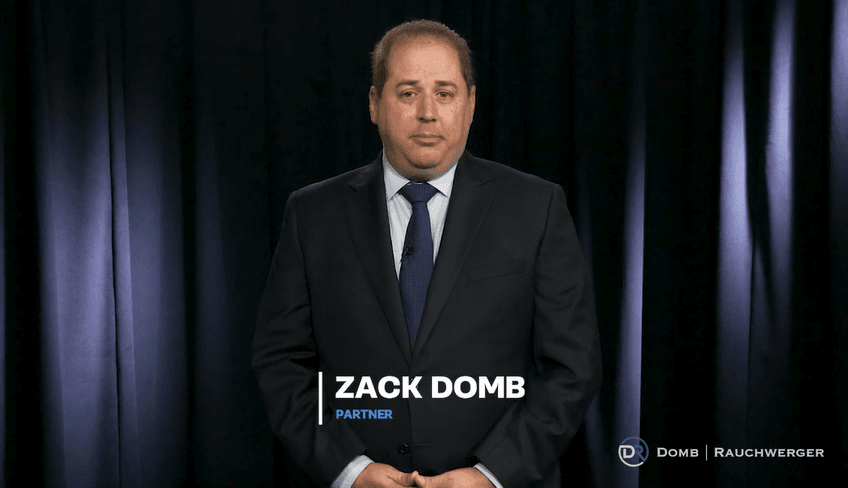
Wrongful Termination Attorneys in Pasadena, California
California is an at-will state, which means that you or your employer may end your employment relationship for any reason, at any time, provided that the reason is not illegal. Unless you have a written agreement stating that you can only be terminated for “good cause,” then your employment is likely at-will.
Sometimes, your employment may be so disruptive to your physical and mental well-being that you are left with no other option but to quit. You may still have a wrongful termination claim against your employer even if you are the one who initiated your separation from the company.
If you are thinking about quitting because you believe the situation at your job is intolerable, it is best to contact an attorney before making that decision. If you have been wrongfully terminated or your work situation has become unbearable, an attorney with Domb Rauchwerger can meet with you to discuss your case.
If we determine that you are eligible to file a claim, we can build a solid case to pursue maximum compensation for the losses and damages you may have suffered from employment law violations.
Connect with a team member online or at (213) 772-5882 to request a free consultation with a Pasadena wrongful termination lawyer.
Reasons to File a Wrongful Termination Claim in California
California law protects workers from being terminated for several different reasons, such as the following:
Discrimination
California’s Fair Employment and Housing Act (FEHA) makes it illegal for an employer to fire you because of the following protected characteristics:
- Race
- Color
- Sex
- Age (over 40)
- Genetic information
- National origin
- Ancestry
- Religion
- Physical or mental disability
- Marital status
- Sexual orientation
- Gender identity
If you believe your firing was discriminatory, you may be eligible to file a claim.
Retaliation
It’s also illegal for your employer to fire you in retaliation for engaging in a protected activity.
Domb & Rauchwerger What Qualifies as Wrongful Termination?
Don't face legal challenges alone. Contact us at (213) 772-5882 to discuss your case with our experienced attorneys.

How Does an Attorney Evaluate Wrongful Termination Cases?
When a worker is terminated, the most critical facts for an attorney to know are: 1) the reason the employer provided for terminating the employee and 2) if the employee suspects a different reason for why they were terminated.
For instance, if an employer fires an employee for a reason unrelated to their job performance or behavior, this could be considered wrongful termination. The employer might disguise the unlawful reason and claim it is based on the employee’s job performance, even though the employee knows the employer had an ulterior motive.
Our Wrongful Termination Services for California Workers
If you believe you’ve been wrongfully terminated, an attorney from our Pasadena team can provide several services to seek the compensation and justice you deserve.
Here’s how a lawyer can help you:
Determine If You Have Grounds for a Claim
Employees may be discharged for reasons that seem unreasonable but are entirely legal. We can assess your situation and determine if the reason you were fired was unlawful. We can proceed with the legal process if you have grounds for a claim.
Analyze Evidence
To hold your employer liable for wrongful termination, you must prove that your firing was against the law. For example, if you were discharged because of your protected class, you’ll need evidence that proves your employer fired you because of your race, gender identity, or another protected category.
If you have any paperwork, emails, or other documents that show your discharge was discriminatory, retaliatory, or illegal for another reason, we can review the records you provide and use them to support your claim.
Our team may also use testimony from another employee from your company to bolster your claim. If you know someone from the company who understands the reason for your discharge, passing that information on to your lawyer can further support your case.
Help You Submit a Complaint
Depending on your claim, you may need to exhaust your administrative remedies by lodging a complaint with the Equal Employment Opportunity Commission (EEOC) or the California Department of Fair Employment and Housing (DFEH). We can file the claim on your behalf to obtain a right-to-sue letter so that you can proceed with a case in civil court. Our attorney can ensure your complaint contains the correct information.
Pursue Compensation on Your Behalf
Before filing a lawsuit, your lawyer can attempt to negotiate a settlement on your behalf. If we negotiate a fair payment, you’ll receive money to compensate you for the losses and hardships you’ve endured due to your wrongful termination.
However, your attorney can take further action if your employer and their lawyer refuse to settle. We can seek damages via a lawsuit or arbitration, depending on your circumstances.
Ensure Your Claim Is Filed on Time
If you’re filing a claim under the FEHA, you’ll have three years to do so. However, different types of claims have different filing deadlines. An attorney can determine how long you have to submit a claim and ensure it’s done promptly.
What You Could Gain from a Successful Claim
Contract Employees or Those Who Work for a Company With Less Than Five Employees
The FEHA only applies to employers with at least five employees and does not protect independent contractors. However, you should consult an attorney if you have been classified as an independent contractor because many employers misclassify workers as independent contractors.
If FEHA does not apply to you because of the size of your employer, you can still file a wrongful termination claim based on a violation of public policy.
If you believe you have been discharged illegally, a wrongful termination lawyer can evaluate the situation, help you gather evidence, and pursue legal action.


What Makes Us Different
-
Former Defense AttorneysGain a unique advantage with our firsthand knowledge of how corporations and insurance companies operate.
-
Collaborate ApproachOur founders collaborate on every case. This dynamic approach enhances our ability to secure favorable outcomes for you.
-
Respected in the Legal CommunityOur esteemed reputation and well-established connections within the legal community set us apart.
-
Free ConsultationsTalk through all of your legal options during a free consultation.
-
Millions Recovered on Behalf of Our ClientsOur track record of successful outcomes demonstrates our proficiency and commitment to fighting for your rights.
-
Hablamos EspañolEmployment law help provided by a Spanish-speaking team.
Discuss Your Case with a Skilled Pasadena Wrongful Termination Attorney
The team at Domb Rauchwerger has obtained countless impressive settlements and verdicts on behalf of workers who’ve experienced sexual harassment, retaliation, discrimination, and wrongful termination. We have what it takes to build a facts-based claim on your behalf and demand the compensation you’re owed.
We understand how emotionally and financially devastating wrongful termination can be. We are committed to guiding clients through the legal process with compassion and understanding while aggressively seeking rightful compensation.
Find out if you can pursue financial remedies in a California wrongful termination case by contacting us at (213) 772-5882.

